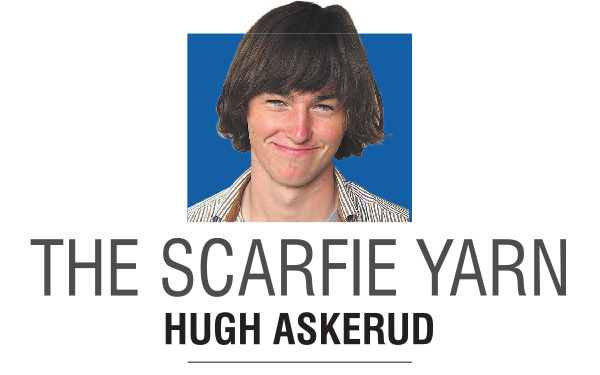
Though the candidate, Liam White, has experience in the exec as its political representative and is considered by most involved to be a pretty safe bet, it’s not a great thing when no-one bothers showing up for the party.
On top of this, three other roles have gone uncontested, mirroring last year when four roles went uncontested.
Disengagement is now a sad trend for the OUSA. It’s a problem which, no matter how much effort is put into solving it, stubbornly refuses to go away. So how did we get to this?
Why is the president of the OUSA exec a role no-one wants, and where to from here?
When it comes down to it, the OUSA started out as a bunch of students who mashed themselves together to stand up for students.

Founded in 1890, the OUSA has since been in charge of running student services, events, and advocating for students against the university and other big bads.
And that’s because of the 2011 Voluntary Student Membership Act, which made the University of Otago the middleman between students and the OUSA. It also meant the OUSA had to become more businesslike as it had no universal source of funding and instead needed to rely on events and services to get its much-needed dosh.
So, in time, the student executive, the actual students of the OUSA, fell increasingly under the sway of OUSA staff, who kept the boat afloat and provided the events and services that students asked for.
Problem is, when you take out the students, what is the OUSA? Is it not just an extended arm of the university with a green coat of paint? Is it really possible for the OUSA to stand up to the university in this scenario (like it is supposed to)?
Well, yes and no. The exec is still the governing party, they still make the decisions. An executive sets the strategic decision of the organisation and also has the capacity to fire its CEO. This actually happened at Massey University a few years ago.
It’s a scary reality for staff but at the same time, it’s a consequence of staff becoming the central facet of the OUSA as opposed to the students, who do more of the advocacy stuff.
Right now, it feels like the OUSA is dangerously close to tipping into a space where the exec falls victim to interest group manipulation or worse.
And if students aren’t engaged people just won’t apply for the roles which matter. We need healthy democratic competition in these roles to get some change in advocacy approaches and to wrestle a bit of control back to the students.
There are of course other reasons people don’t want to be president.
Firstly, it’s a 40-hour-a-week role which earns you very little. Sure, it looks good on a CV, but are students who have pretty much finished their degrees really wanting to stay on another year while all their peers have fled?
There are a few problems with the role which can arise at an individual level, but if there is widespread engagement from students, they should be surmountable challenges.
It’s not like the exec haven’t been trying. They have had much more of a felt impact across campus and have taken to online in efforts to spread their message and get students involved.
The future of the OUSA exec and OUSA more generally is reclaiming the ‘‘students’’ in the acronym’s title.
I hope the next few execs can do this and consequently reclaim the engagement levels they had pre-Covid and pre-2011, if they’re lucky.
If not, the execs that are five to 10 years away might pull a Massey, or something else just because no-one could be bothered to show up at the elections.
This year’s OUSA elections are a sign to act for the now and the future. Maybe we stop calling it the OUSA (business vibes) and just go for the ‘‘student crew’’ or something just as silly.
Regardless of name, it’s time for students to reclaim the student mantle of the OUSA and pave the way for real advocacy against the forces that oppose students.
• Hugh Askerud is a 20-year-old local and student at the University of Otago, majoring in politics and religious studies. He also works as a writer for student magazine Critic Te Arohi and is an OUSA employee.












